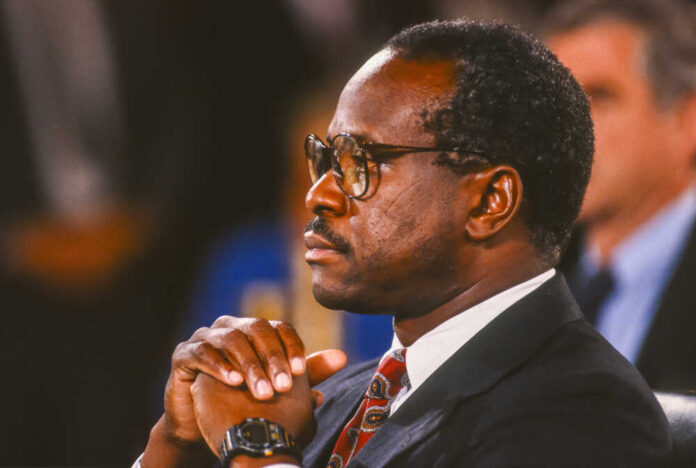The Supreme Court handed down a 6-3 ruling this week that effectively bars colleges and universities from using affirmative action in the admissions process.
All six conservative justices ruled in favor of doing so, while the three liberal justices voted against it.
The two sides were at great odds on this one, with justices on each side of the argument issuing scathing remarks and rebuttals to each other.
The concurring opinion by conservative Justice Clarence Thomas was particularly attacking to liberal Justice Ketanji Brown Jackson and her “race-infused world view.”
Thomas is the second black justice to be on the Supreme Court, and Jackson is the third. They are the only two current Black members of the high court.
In his concurring opinion, Thomas wrote that the Supreme Court’s decision “sees the universities’ admissions policies for what they are: rudderless, race-based preferences designed to ensure a particular racial mix in their entering classes.”
He also wrote that “Justice Jackson’s race-infused world view falls flat at each step.”
He continued:
“Individuals are the sum of their unique experiences, challenges and accomplishments. What matters is not the barriers they face, but how they choose to confront them. And their race is not to blame for everything – good or bad – that happens in their life.”
Thomas said that he wrote his concurring opinion because he wanted “to offer an originalist defense of the colorblind Constitution” as well as to “clarify that all forms of discrimination based on race – including so-called affirmative action – are prohibited under the Constitution; and to emphasize the pernicious effects of all such discrimination.”
In her own dissent on the ruling, Jackson said it was “truly a tragedy for us all.”
But, Thomas said she used “ostrich-like” logic in her opinion. He wrote:
“Though Justice Jackson seems to think that her race-based theory can somehow benefit everyone, it is an immutable fact that every time the government uses racial criteria to ‘bring the races together,’ someone gets excluded, and the person excluded suffers an injury solely because of his or her race.
“Justice Jackson seems to have no response – no explanation at all – for the people who will shoulder that burden. How, for example, would Justice Jackson explain the need for race-based preferences to the Chinese student who has worked hard his whole life, only to be denied college admission in part because of his skin color?”
The Fourteenth Amendment to the Constitution proclaimed that citizens are not allowed to be sorted based on their race, Thomas wrote. It was done by those who wrote the amendment to “fulfill the promise of equality under the law” not long after the Civil War ended.
Thomas then took direct aim at Jackson again when he wrote:
“Justice Jackson would replace the second Founders’ vision with an organizing principle based on race. In fact, on her view, almost all of life’s outcomes may be unhesitatingly ascribed to race.
“Even in the segregated South where I grew up, individuals were not the sum of their skin color. Then as now, not all disparities are based on race; not all people are racist; and not all differences between individuals are ascribable to race.”














